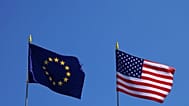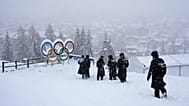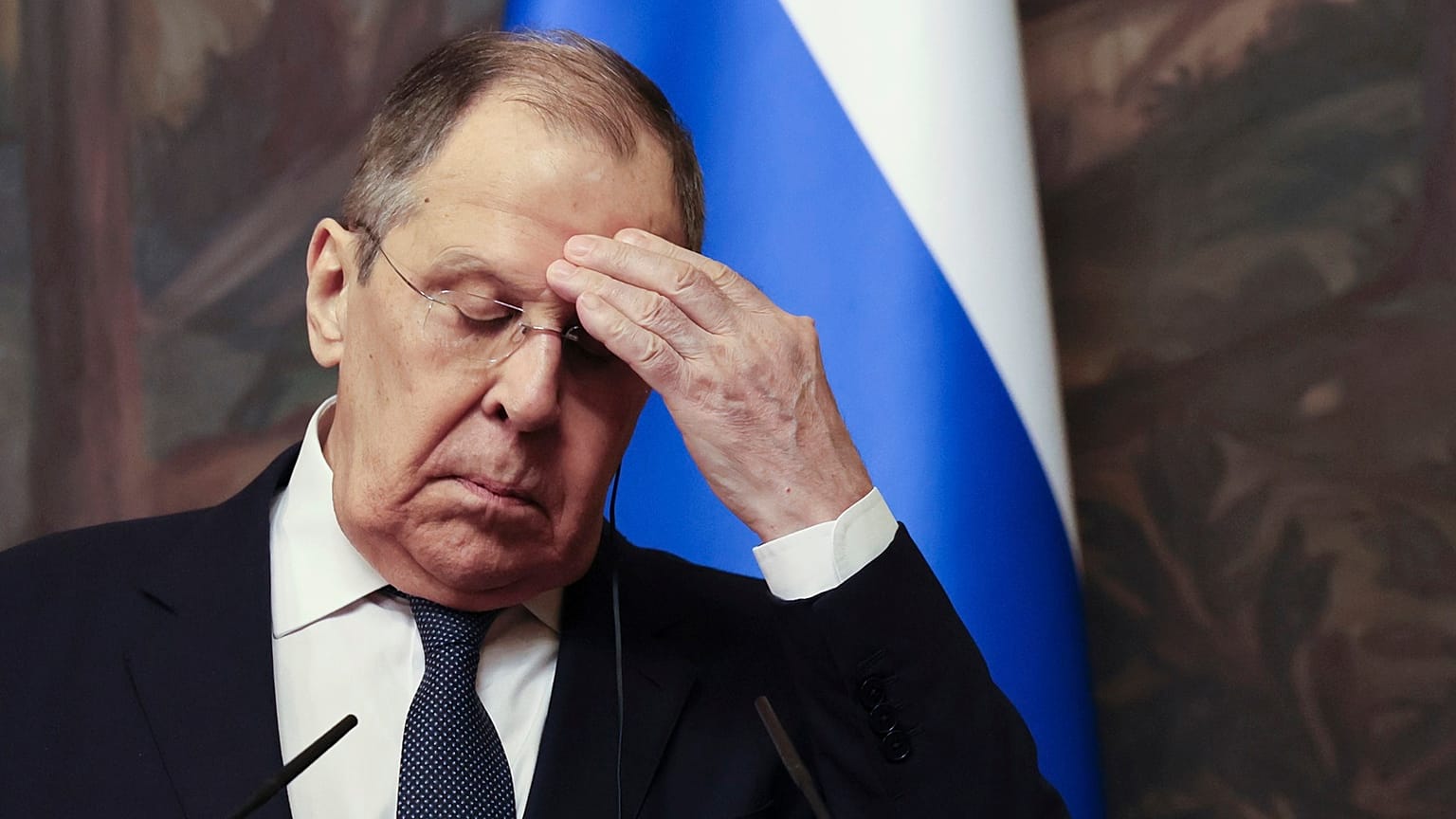If approved, the system would oblige Russian diplomats to notify in advance their intention to travel to or transit through another member state.
The European Union is considering a proposal that could potentially restrict the movements of Russian diplomats across the bloc's territory, according to a document added to the latest round of sanctions and seen by Euronews.
 ADVERTISEMENT
ADVERTISEMENT
 ADVERTISEMENT
ADVERTISEMENT
The plan would concern members of Russia's diplomatic and consular missions, including administrative and technical staff as well as family members.
If approved, it would establish an obligation for Russian envoys to notify their intention to travel to or transit through another member state beyond their host nation.
The notification should be issued "at least 24 hours" before arrival, the document says, and lay out the means of transport and the date and point of entry/exit.
The receiving state would then have the possibility to either allow or deny passage.
"It's a step forward in the right direction," said a senior EU diplomat. "It's important to act now rather than to wait for something to happen."
The proposal was recently added by the European External Action Service (EEAS) to the 19th package of sanctions against Russia, which is currently under negotiation.
When the sanctions were presented last month, they did not feature any measures regarding Russian diplomats. The main elements focused on Moscow's energy sector.
The EEAS then sensed momentum for the idea and tabled the two-page text.
In its reasoning, the EEAS argues that Russian diplomats are "often involved in activities that contribute to Russia's aggression against Ukraine, notably by spreading the Russian rhetoric on the causes of the war, its unfolding and the role of the Union".
Russian diplomats who move across the bloc are at risk of engaging in "coordinated information manipulation and interference or other acts targeted at manipulating public opinion", the document warns.
The EEAS insists the restrictions on travel would not infringe the 1961 Vienna Convention on Diplomatic Relations because they would not curtail movements inside the country where Russian envoys are formally posted, nor impede their ability to reach Russia.
Czech push
While the proposal marks the first time the idea of targeting Russian diplomats is seriously discussed, there has been no shortage of informal debates around the issue.
In the early months of the full-scale invasion, several member states expelled Russian staff accused of espionage, triggering a tit-for-tat response by the Kremlin.
The Czech Republic has long called for the restrictions to be installed at an EU-wide level. The country has been the object of Russian hybrid activities, such as cyberattacks against state institutions and disinformation campaigns in parliamentary elections.
Last week, Czech Foreign Minister Jan Lipavský announced an entry ban on Russian diplomats who lack accreditation issued by Prague.
"Sabotage operations are on the rise and we will not risk agents operating under diplomatic cover," Lipavský said on social media.
"We are setting an example for other countries and I will continue to push for the most rigorous measures at the Schengen level. We will defend Czechia."
The Czech plan was long resisted by some member states concerned about the importance of maintaining dialogue with Moscow.
However, the scepticism subsided to a point where the EEAS felt comfortable enough to table the proposal, signalling high, though not guaranteed, chances for approval.
Like any other sanction, it would require the unanimity of 27 member states.
Given that the decision to allow or deny entry would be made exclusively by capitals, the restrictions are expected to be implemented asymmetrically. Some countries might opt for an expansive view to curb movements, while others might be more permissive.
Negotiations on the 19th package are set to continue on Wednesday. Officials are keeping a close eye on Slovakia, which has not complained about the content of the package itself but has floated unrelated demands to provide its consent.
During the previous round of sanctions, Slovak Prime Minister Robert Fico demanded financial compensation for phasing out Russian fossil fuels. After weeks of haggling, he only obtained a letter with non-binding assurances.














